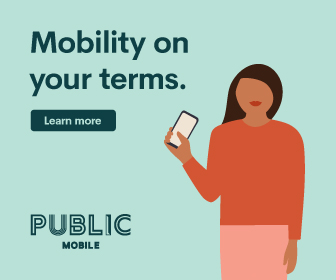How Self-Employed People Can Get A Mortgage
Being self-employed can come with many benefits, but there are also some unique challenges—including the challenge of getting a mortgage as a self-employed person. Banks and other lenders often consider self-employment income to be more volatile than income from traditional employment, making it harder to qualify for a loan. Thankfully, there are still ways for self-employed people to get mortgages. Here’s what you need to know.
Proof of Income & Tax Returns
When applying for a mortgage as a self-employed person, you’ll need to provide proof of income and your tax returns. This is because lenders want to see that you have steady income and that your finances are in order. It can be helpful to provide bank statements showing deposits from clients or customers over the past two years, along with copies of your tax returns going back at least two years as well. Additionally, you should make sure that all of your taxes have been paid up until the date when you apply for the loan.
Credit Score & Down Payment
In addition to providing proof of income and tax returns, lenders will also look at your credit score and down payment amount when evaluating whether or not you qualify for a loan. Generally speaking, the higher your credit score is, the better chance you have of being approved for a loan—so if possible, try to pay down any outstanding debts before applying so that your score is as high as possible. In terms of the down payment amount required by most lenders, self-employed borrowers typically need to put down 20% or more in order to secure financing.
Alternative Financing Options
If traditional loans don’t seem like an option due to volatile income or other factors, there are still other financing options available. For example, private money lenders may be willing to offer different types of loans such as hard money loans even if traditional banks won’t approve them; these types of loans usually require less paperwork and can often be obtained quickly since they involve borrowing from private individuals rather than large financial institutions. Additionally, there may be government programs available for business owners who meet certain criteria; doing some research into local programs can help you find one that fits your needs and budget best.
Everything You Need to Know About No Income Verification Mortgages in Canada
A no-income verification mortgage (NIVM) is an alternative financing option for Canadians who cannot provide proof of income. This type of loan allows borrowers to purchase a home without having to show their bank statements, pay stubs, or tax returns. It is an attractive option for those who have irregular incomes or are self-employed. This blog post will discuss the pros and cons of No Income Verification Mortgages in Canada and how you can apply for one.
Benefits of No Income Verification Mortgages
The main advantage of an No Income Verification Mortgages is that it allows people with irregular incomes or who are self-employed to obtain financing when they might otherwise be unable. This means that more Canadians will be able to purchase a home and build equity faster than would otherwise be possible. Additionally, since no income verification is required, the application process can be much faster than it would be with a traditional mortgage lender. The shorter timeline makes it easier for potential borrowers to purchase a home quickly if they need to do so.
The Downsides of No Income Verification Mortgage Loans
The main downside of No Income Verification Mortgages is that they often come with higher interest rates than traditional mortgages due to the greater risk involved in lending money without verifying the borrower’s ability to repay it. Additionally, some lenders may require a larger down payment when applying for this type of loan—usually 20% or more—in order to offset their risk further. It’s important to shop around and compare different lenders’ terms before you commit to any particular loan so that you can get the best deal available.
How Do I Apply for a No Income Verification Mortgage?
Applying for an No Income Verification Mortgage isn’t much different from applying for a regular mortgage loan; however, there are some key differences that you should keep in mind when doing so. For instance, many lenders will require that you submit additional documents such as bank statements or proof of assets in order to verify your financial situation before approving your application. Additionally, since these types of loans involve higher risk on the part of the lender, they may also require more stringent credit checks and other measures before agreeing to provide financing. Make sure you understand all the requirements before submitting your application so that you don’t run into any surprises down the line!
No income verification mortgages are alternative financing options for Canadians who cannot provide proof of income due to self-employment or other factors preventing them from doing so. These loans offer advantages such as fast approval times and increased accessibility; however, they also come with higher interest rates and larger down payments than traditional mortgages due to their increased risk level on behalf of the lender.
What is a Stated Income Mortgage?
There are many different kinds of mortgages available to home buyers. One option, known as a stated income mortgage, is particularly attractive for those who may not have the ability to provide proof of income. This type of loan allows borrowers to qualify for financing with limited documentation and paperwork.
How Does a Stated Income Mortgage Work?
A stated income mortgage enables potential borrowers to qualify for a loan without having to provide full documentation of their employment and income. Instead, the lender looks at the borrower’s credit score, assets, and other factors such as debt-to-income ratio. This makes it easier for borrowers with irregular or unpredictable incomes—such as freelancers or entrepreneurs—to get loans that they might not otherwise be able to get.
One key factor in obtaining a stated income mortgage is having good credit. Since there isn’t much information about your employment history or income level, lenders will look more closely at your credit score than usual. Generally speaking, you will need a score of at least 620 to qualify for this kind of loan; however, some lenders may require higher scores depending on their own requirements. Additionally, since there is less paperwork involved in applying for this type of loan, it can be approved more quickly than traditional mortgages.
Advantages & Disadvantages of Stated Income Mortgages
The main advantage of a stated income mortgage is that it offers flexibility in terms of what kind of borrower can qualify for one. It opens up options for those who may not have been able to get approved before due to a lack of paperwork or documents related to their incomes. On the other hand, due to the inherent risks associated with this type of loan, stated income mortgages usually come with higher interest rates than traditional mortgages and may also require larger down payments (depending on the lender). Additionally, regulations put in place after the 2008 housing crisis has made them harder to obtain, so it’s important that you do your research before applying for one!
If you don’t have all the documents required by traditional lenders but still want to buy a home or refinance an existing one then getting a stated income mortgage could be an option worth considering. With fewer qualifications needed but higher interest rates attached, it’s important that you weigh out all your options before committing to such an agreement – especially since regulations put in place after 2008 make them harder than ever before! Real estate agents and financial advisors can help guide you through the process if you’re unsure about any part of it so don’t hesitate to reach out when making decisions about your future investments!
What Documentation is Needed When Applying For a Mortgage as a Self-Employed Person?
Do I Need Good Credit To Get Approved For A Mortgage?
How Much Do I Have To Put Down When Purchasing A Home As A Self Employed Individual?
What is a Stated Income Mortgage?
What are the Benefits of a Stated Income Mortgage?
Are There Any Downsides to Consider?
Conclusion:
Getting a mortgage as a self-employed person can be challenging—but it’s certainly not impossible! By gathering all the necessary documents (tax returns/proof of income), having good credit scores/making ample down payments if possible, and researching alternative financing options if needed —self-employed people can still get approved for mortgages just like anyone else! Doing research ahead of time will help ensure that everything goes smoothly on application day so that you can start the home ownership process without any hiccups!
















